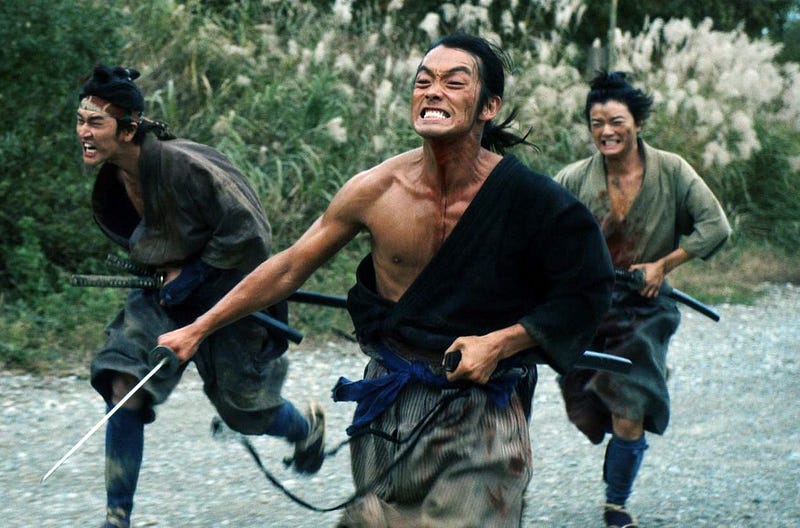CANDYMAN’s Bernard Rose and Philip Glass Reteam to Conquer Yet Another Genre

Samurai Marathon is available this week on VOD platforms from Well Go USA. A Blu-ray release is planned for July.
Samurai Marathon reteams Bernard Rose and Philip Glass, the director and musical composer of Candyman, and it turns out this unexpected duo have crafted the best chanbara film in a very long time, and certainly my favorite since Takashi Miike’s 13 Assassins (2010).
If that’s enough to whet your appetite, and it should be, then congratulations — you don’t really need to read the rest of this review. Just know that this movie is damn great and that despite the odd title, it is definitely a samurai film with all the drama and swordplay that that suggests (not a “sports movie”). The opening is a little disorienting as it sets the stage with a large cast of characters, but stay with it and narratives soon become beautifully intertwined.

Despite the team-up of Rose and Glass who set the film’s tone with beautiful direction and score, this is in nearly all other respects a Japanese film: in cast, language, and setting.
The film revolves around a clan of samurai in service to the lord of their domain, Annaka. Sensing that the relative peace has dulled their skills, and fearful of new threats posed by political developments and western influence, he assigns them a grueling task: to run a 36-mile foot-race through the region’s rugged terrain, carrying their swords.
Several primary characters emerge: A retired samurai desperate to demonstrate his resilience and usefulness. His new student, a young boy desperate to prove his readyness. The clan’s best runner, tempted by a wealthy gambler’s bribe to throw the race. Various heroes, scoundrels, and cheaters each spurred by the generous prize offered to the winner. Even the lord’s sheltered daughter, the princess, flees the palace and joins in secret as a show of independence.

At the center of the tale is Jinnai, a secret ninja spy whose family has been loyal to the central government for generations. He mistakes the clan’s sudden mobilization as preparation for war and fires off a false warning to Edo, only to realize that his mistake could start a war.
At the height of the marathon, a team of Edo’s assassins attack the defenseless village emptied of its protectors, and as the samurai become aware of the trouble at home, they must run back to Annaka to battle at the very height of their exhaustion. This is where the film truly gets magnificent, as the weary, depleted fighters make their return and try to find their second wind, attacking their invaders (the leader of whom brandishes a pair of death-dealing pistols).

Meanwhile the anguished Jinnai deals with a crisis of conscience, to remain loyal to his family’s secret creed which he is sworn to uphold, or betray his life’s purpose and defend his home and friends from an unjustified attack which he caused.
As I mentioned, the film is dense at the start, as it sets up a lot of framing and context and multiple characters before settling into the narrative. In fact the opening segment (featuring Danny Huston as US Commodore Matthew Perry) is only indirectly tied to the plot, mostly serving as a preface placing the story in historical context: a time when western influence has introduced firearms to Japan, creating a sudden technological disparity and hailing the end of the samurai age with the innovation of instantaneous, convenient, long-range death.

The structure of the film is such that it takes awhile to get to the actual swordplay, but once it starts the action is furious and dramatic, and even a bit humorous — one particular beheading cracked me up because of the convulsive expressions on the relieved head. Overall, I found the level of violence pleasing — appropriately bloody without being gratuitous.
I really loved Samurai Marathon more and more as it went on, and by the end I was fully enamored — my second viewing started the moment the credits rolled on the first (and the first 20 minutes or so made a lot more sense the second time around, given the additional context).
Verdict: Very highly recommended.

A/V Out.
Get it at Amazon:
If you enjoy reading Cinapse, purchasing items through our affiliate links can tip us with a small commission at no additional cost to you.
Available now on VOD
Pre-order the Blu-ray (out 7/21)


